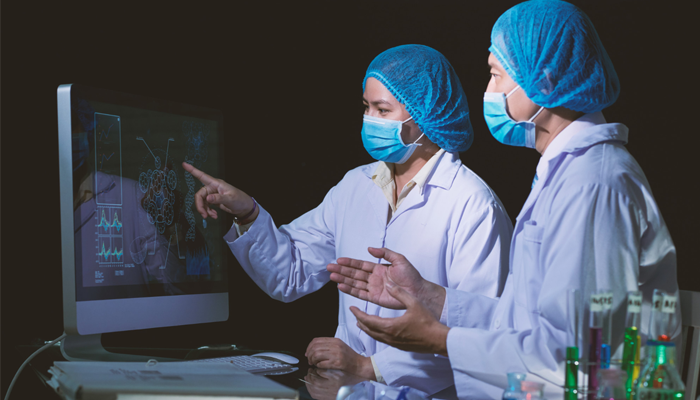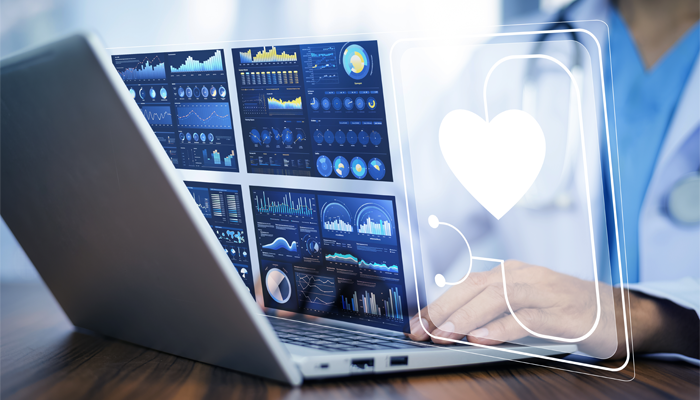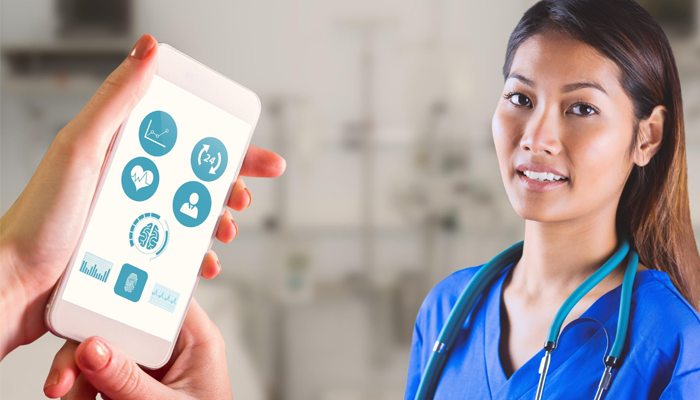
Posted On May 29, 2025
The Role of IoT in Smart Health Monitoring Devices
In recent years, the healthcare sector has witnessed remarkable advancements, especially with the rise of smart health monitoring devices. At the heart of this innovation lies the Internet of Things (IoT) – a technology that is transforming how health data is collected, monitored, and analysed. This blog explores the key role of IoT in smart health monitoring devices and how it is improving healthcare outcomes in the UAE and beyond.
What Is IoT and How Does It Work in Health Monitoring?
The Internet of Things, commonly known as IoT, refers to a network of interconnected devices that communicate and share data through the internet. In health monitoring, IoT-enabled devices like wearable fitness trackers, smartwatches, and remote sensors collect vital health information such as heart rate, blood pressure, glucose levels, and sleep patterns. These devices transmit the data in real-time to healthcare providers or directly to users, enabling continuous monitoring without the need for frequent hospital visits.
Key Benefits of IoT in Smart Health Devices
IoT brings several benefits to healthcare, particularly through smart health monitoring devices:
-
Continuous Monitoring: Patients’ health data is tracked 24/7, allowing early detection of potential issues.
-
Improved Patient Engagement: Users gain better insight into their health, encouraging proactive care.
-
Remote Healthcare: IoT devices enable doctors to monitor patients remotely, which is especially valuable in the UAE’s widespread regions.
-
Efficient Data Management: Automated data collection reduces errors compared to manual record-keeping.
-
Cost-Effective Care: Early intervention through IoT can reduce hospital readmissions and costly emergency treatments.
How IoT Devices Help Track Vital Health Signs
Smart health devices use various sensors to measure vital signs accurately. For example, wearable devices monitor heart rate, oxygen saturation, and physical activity, while implantable sensors can track blood glucose or blood pressure levels. The real-time data transmission helps in creating a comprehensive health profile that healthcare professionals can use to tailor treatments, adjust medications, or provide timely advice.
Improving Patient Care with Real-Time Health Data
One of the most significant advantages of IoT in health monitoring is the ability to provide real-time data to healthcare providers. This constant flow of information means that doctors can detect abnormalities or changes in a patient’s condition much faster than traditional methods. In emergency situations, alerts can be sent immediately, facilitating prompt medical intervention that could save lives. For chronic disease patients, this level of monitoring offers peace of mind and better disease management.
Common Types of IoT Health Monitoring Devices
The market offers a wide range of IoT health monitoring devices suitable for different needs:
-
Wearables: Smartwatches and fitness bands that track physical activity, heart rate, and sleep.
-
Remote Patient Monitoring Devices: Blood pressure monitors, glucose meters, and pulse oximeters that send data to healthcare providers.
-
Smart Pills and Implants: Devices that track medication intake or internal health metrics.
-
Home Health Devices: Connected thermometers and scales that help track general wellbeing.
Each of these devices plays a crucial role in personal and clinical healthcare, enhancing convenience and health outcomes.
The Impact of IoT on Managing Chronic Diseases
Chronic diseases such as diabetes, hypertension, and heart conditions require constant monitoring and careful management. IoT-enabled health devices have transformed the way patients and healthcare providers manage these conditions. These smart devices continuously collect data on vital signs, medication adherence, and lifestyle factors, providing timely alerts when something is amiss. This real-time monitoring helps in early detection of potential health issues, reducing hospital visits and improving patient outcomes. For residents in the UAE, where chronic conditions are increasingly prevalent, IoT health monitoring devices offer a practical and effective solution to manage health at home.
Ensuring Data Privacy and Security in Health IoT
As IoT devices gather sensitive health information, data privacy and security have become critical concerns. In the UAE, healthcare providers and technology developers are adhering to strict regulations to protect patient data from breaches and misuse. Advanced encryption methods and secure data transmission protocols are implemented to ensure information remains confidential. Users can trust that their health data is safeguarded while benefiting from the convenience of smart health monitoring. Maintaining privacy is essential to build confidence in IoT health solutions and encourage widespread adoption across the region.
Challenges and Solutions in IoT Health Monitoring
Despite the many benefits, IoT health monitoring faces some challenges. These include device interoperability, limited battery life, and the need for reliable internet connectivity. Additionally, some users may find it difficult to adapt to new technologies. However, continuous improvements in IoT design and infrastructure are addressing these issues. Manufacturers are focusing on creating more user-friendly devices with longer battery life and seamless integration with other health systems. In the UAE, investments in digital infrastructure and healthcare innovation are helping overcome these barriers, making IoT devices more accessible and dependable.
The Future of Healthcare with IoT Technology
The future of healthcare in the UAE looks promising with the continued growth of IoT technology. Smart health devices will become more sophisticated, offering advanced features such as predictive analytics, personalised health recommendations, and seamless communication between patients and healthcare professionals. IoT will enable a more proactive approach to health management, shifting the focus from treatment to prevention. This transformation aligns well with the UAE’s vision for a smart and healthy society, leveraging technology to improve quality of life for all residents.
How UAE Healthcare Providers Are Adopting IoT Devices
Healthcare providers across the UAE are increasingly integrating IoT devices into their services to enhance patient care. Hospitals, clinics, and wellness centres are adopting smart monitoring tools to offer remote patient monitoring, reduce hospital stays, and streamline healthcare delivery. This adoption supports the UAE’s broader goals of digital transformation and healthcare innovation. Patients benefit from continuous care outside traditional settings, improving convenience and health outcomes. IoT’s growing role in the healthcare system highlights its potential to revolutionise how health services are delivered in the region.
Conclusion
The integration of IoT in smart health monitoring devices is revolutionising healthcare delivery in the UAE and worldwide. By enabling continuous, real-time monitoring of vital health data, IoT supports more personalised, efficient, and proactive care. As this technology continues to evolve, it promises to make healthcare more accessible and responsive to individual needs.
For more insights and solutions related to smart technology in healthcare, visit Smart Data Inc.





